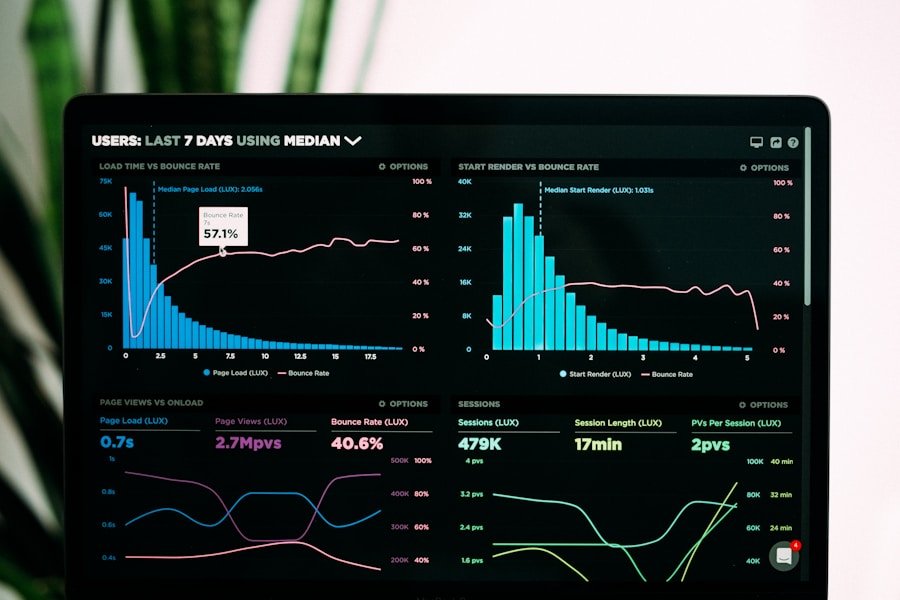The adoption of biometric security technology has been increasing in recent years, driven by the growing need for advanced security measures to protect assets and information. This technology utilizes unique physical and behavioral characteristics, such as fingerprints, facial recognition, and voice patterns, to authenticate an individual’s identity. The high accuracy and reliability of biometric security have made it a valuable tool for ensuring personal and business safety.
As the demand for secure identification and access control methods continues to rise, biometric security is emerging as a key solution for safety and protection. The escalating threat of cyber attacks and identity theft has created a pressing need for more robust security measures, rendering traditional methods such as passwords and PINs insufficient. Biometric security offers a more secure alternative by leveraging unique biological traits that are virtually impossible to replicate or steal.
Consequently, biometric technology has gained widespread adoption across various industries, including finance, healthcare, government, and law enforcement. Its ability to provide enhanced security and accuracy has established biometric technology as a preferred solution for personal and business safety.
Key Takeaways
- Biometric security is the future of personal and business safety due to its accuracy and convenience.
- The rise of biometric security technology has led to increased adoption in various industries and everyday life.
- Advantages of biometric security for personal safety include enhanced protection against unauthorized access and identity theft.
- Biometric security is revolutionizing business safety by providing secure access control and accurate employee authentication.
- Addressing concerns and misconceptions about biometric security is crucial for its widespread acceptance and integration into everyday life.
Advantages of Biometric Security for Personal Safety
Biometric security offers a number of advantages for personal safety, making it an attractive option for individuals looking to protect their homes, vehicles, and personal information. One of the key benefits of biometric security is its high level of accuracy and reliability. Unlike traditional forms of security, such as keys or access codes, biometric identifiers cannot be easily duplicated or stolen, making them a more secure option for protecting personal assets.
Additionally, biometric security offers a convenient and user-friendly experience, eliminating the need to remember passwords or carry around keys. With biometric technology, individuals can simply use their unique biological traits, such as fingerprints or facial recognition, to gain access to their homes, vehicles, or electronic devices. Another advantage of biometric security for personal safety is its ability to provide real-time monitoring and alerts.
Many biometric security systems are equipped with advanced sensors and cameras that can detect unauthorized access or suspicious activity, allowing individuals to take immediate action to protect themselves and their property. This level of proactive security is especially valuable in today’s digital age, where cyber threats and identity theft are on the rise. By leveraging biometric technology, individuals can have peace of mind knowing that their personal safety is being actively monitored and protected at all times.
How Biometric Security is Revolutionizing Business Safety
In addition to its benefits for personal safety, biometric security is also revolutionizing the way businesses protect their assets and information. One of the key ways that biometric technology is transforming business safety is through its ability to provide a higher level of access control and authentication. With biometric identifiers, businesses can ensure that only authorized individuals have access to sensitive areas or information, reducing the risk of insider threats and unauthorized access.
This level of control is especially important in industries such as finance, healthcare, and government, where the protection of sensitive data is paramount. Another way that biometric security is revolutionizing business safety is through its ability to streamline security processes and reduce the risk of human error. Traditional forms of security, such as keys or access cards, can be lost, stolen, or forgotten, leading to potential security breaches.
Biometric identifiers, on the other hand, are tied directly to an individual’s unique biological traits, eliminating the need for physical tokens or passwords. This not only reduces the risk of security breaches but also saves businesses time and resources by eliminating the need for manual authentication processes.
Addressing Concerns and Misconceptions about Biometric Security
| Metrics | Data |
|---|---|
| Identity Theft Cases | 10 million annually |
| Biometric Authentication Accuracy | Over 99% |
| Cost of Data Breaches | 3.86 million on average |
| Biometric Security Adoption Rate | Expected to reach 65% by 2025 |
| Time to Authenticate | Less than 3 seconds |
Despite its many benefits, biometric security technology has also faced some concerns and misconceptions from individuals and businesses. One common concern is the fear of privacy invasion and data misuse. Many people worry that their biometric data could be stolen or misused by hackers or unauthorized parties.
However, it’s important to note that biometric data is highly encrypted and stored in secure databases, making it extremely difficult for hackers to access or manipulate. Additionally, many biometric security systems are designed with strict privacy controls and compliance measures to ensure that individuals’ biometric data is protected at all times. Another misconception about biometric security is the belief that it is too expensive or complex for everyday use.
While it’s true that biometric technology was once considered a luxury reserved for high-security environments, advancements in technology have made it more accessible and affordable for individuals and businesses alike. In fact, many modern smartphones and electronic devices now come equipped with biometric features, such as fingerprint scanners and facial recognition, making it easier than ever for people to integrate biometric security into their everyday lives.
The Future of Biometric Security in Everyday Life
Looking ahead, the future of biometric security in everyday life looks promising as advancements in technology continue to make it more accessible and reliable. As the demand for stronger security measures grows, we can expect to see biometric technology become even more integrated into our daily routines. From unlocking smartphones and accessing bank accounts to securing homes and vehicles, biometric identifiers will play a key role in providing individuals with a higher level of personal safety and convenience.
In addition to its use in personal settings, biometric security is also expected to play a larger role in public spaces and commercial environments. For example, airports and public transportation hubs are increasingly turning to biometric technology to enhance security measures and streamline passenger processing. Similarly, businesses are likely to adopt biometric identifiers for employee authentication and access control, further strengthening their overall safety measures.
Integrating Biometric Security into Personal and Business Practices
As Biometric Security Takes Hold Biometric security is becoming increasingly prevalent in both personal and professional spheres, making it essential for individuals and organizations to learn how to effectively incorporate this technology into their daily lives. ### Securing Personal Spaces For individuals, this may involve getting familiar with the biometric features on their electronic devices and understanding how to use them securely. Additionally, they may want to consider using biometric security for home or vehicle access to enhance their personal safety. ### Implementing Biometric Security in the Workplace For businesses, integrating biometric security into their practices may involve investing in advanced biometric systems for access control and employee authentication. This also includes implementing strict privacy policies and compliance measures to ensure that biometric data is protected at all times. ### Enjoying the Benefits of Biometric Security By taking proactive steps to integrate biometric security into their practices, individuals and businesses can enjoy the many benefits that this advanced form of security has to offer.
The Role of Biometric Security in Preventing Identity Theft and Fraud
One of the most significant roles that biometric security plays is in preventing identity theft and fraud. With traditional forms of identification, such as passwords or ID cards, individuals are at risk of having their information stolen or replicated by cybercriminals. Biometric identifiers offer a more secure alternative by using unique biological traits that are nearly impossible to replicate or steal.
This makes it much more difficult for hackers and fraudsters to gain unauthorized access to sensitive information or impersonate individuals. In addition to preventing identity theft and fraud, biometric security also plays a key role in enhancing overall cybersecurity measures. By using advanced biometric identifiers for access control and authentication, businesses can reduce the risk of insider threats and unauthorized access to sensitive data.
This level of control not only protects businesses from potential security breaches but also helps build trust with customers who rely on these businesses to safeguard their personal information. In conclusion, biometric security technology is rapidly becoming the future of personal and business safety due to its high level of accuracy, reliability, and convenience. As advancements in technology continue to make biometric identifiers more accessible and affordable, we can expect to see this advanced form of security become even more integrated into our daily lives.
By addressing concerns and misconceptions about biometric security and taking proactive steps to integrate this technology into personal and business practices, individuals and organizations can enjoy the many benefits that biometric security has to offer in preventing identity theft and fraud while enhancing overall safety measures.
FAQs
What is biometric security?
Biometric security is a technology that uses unique physical or behavioral characteristics, such as fingerprints, facial recognition, or iris scans, to verify a person’s identity.
How does biometric security work?
Biometric security systems capture and store an individual’s biometric data, such as fingerprints or facial features, and use this data to verify the person’s identity when they attempt to access a secure area or device.
What are the advantages of biometric security?
Biometric security offers several advantages, including increased security, convenience, and accuracy. It is also difficult to replicate or forge biometric data, making it a highly secure form of authentication.
What are the potential applications of biometric security?
Biometric security can be used in a wide range of applications, including access control for buildings and devices, time and attendance tracking, border control, and identity verification for financial transactions.
Is biometric security the future of personal and business safety?
Many experts believe that biometric security is the future of personal and business safety due to its high level of security and convenience. As technology continues to advance, biometric security systems are becoming more affordable and accessible for a wide range of applications.












